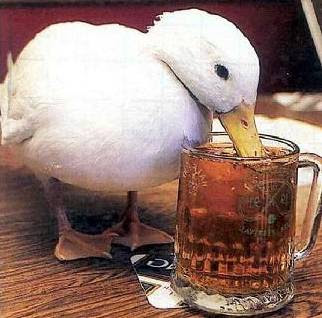https://www.npr.org/sections/health-shots/2020/04/12/832269202/no-you-dont-need-to-disinfect-your-groceries-but-here-s-to-shop-safelyNo, You Don't Need To Disinfect Your Groceries. But Here's How To Shop Safely
...
Don't drive yourself crazy disinfecting your groceries
"Many shoppers are now following elaborate routines to disinfect their groceries, thanks to a viral video put out by a Michigan family doctor. But all of the experts we spoke with say that disinfecting and hand-washing every last item in your grocery haul is really not necessary. You might find it comforting to know that none of these experts are doing this themselves.
Rasmussen explains that the probability of getting infected from a contaminated surface is not zero, but it is fairly low. That's because respiratory droplets would have to have landed on the exact spot on, say, a box of cereal that you are touching. And even then, you'd have to get enough residual virus on your hand to start an infection — and you'd have to transfer that virus to your face. Bottom line: If you follow good hand-hygiene practices — washing your hands after unpacking your groceries, before cooking and before eating — then, she says, your risk is probably "very, very low."
As Aronoff notes, "Time is really on your side here." That's because as soon as the virus lands on a surface, it starts to lose infectiousness. "After 24 hours, the vast majority of virus is no longer infectious," he says. And after 72 hours, he notes that research has found the virus is trace or undetectable on most surfaces. So if you know that you're not going to use a can of soup for two or three days, he says, just put it away, wash your hands and go about your day. And one more thing: Make sure to wipe down your countertops after you unpack.
If you're still worried and it's a food that doesn't need to be refrigerated, Graham says just leave it out for 24 hours.
If you really want to wash your groceries, don't use disinfecting spray or wipes
If it somehow lessens your anxiety to wipe down every last jar of jelly, there's no harm in that, experts agree. But Graham warns that if you feel compelled to wipe, it might be wise to stick to soap and water. "A lot of the packaging that groceries come in is really not meant to be sprayed with disinfectant, and you [could] actually end up contaminating your food," she says.
Schaffner adds that disinfecting sprays and wipes are meant to be used on hard surfaces, which would not include many of the kinds of plastics or cardboard used for food packaging.
Rinse fresh produce in plain water — and eat your veggies!
Some people are advocating washing produce in soap and water. But Schaffner says that's a bad idea because it's possible that if you ingest soap residue, it could lead to diarrhea or vomiting. He says the best thing is just to rinse your produce in cold water. If it's an item with a tough skin, you can use a vegetable brush.
And Schaffner says, please don't reduce your consumption of fresh fruit or vegetables. "There's just no evidence that these foods can transmit the virus or can cause COVID-19," he says. Plus, he says, produce offers valuable nutrients that are especially important in these stressful times."

















 At least he think so. I thought US was democrazy? Well live and learn. Number`s are so ugly right now. Glad see governers to keep it smart.
At least he think so. I thought US was democrazy? Well live and learn. Number`s are so ugly right now. Glad see governers to keep it smart.





